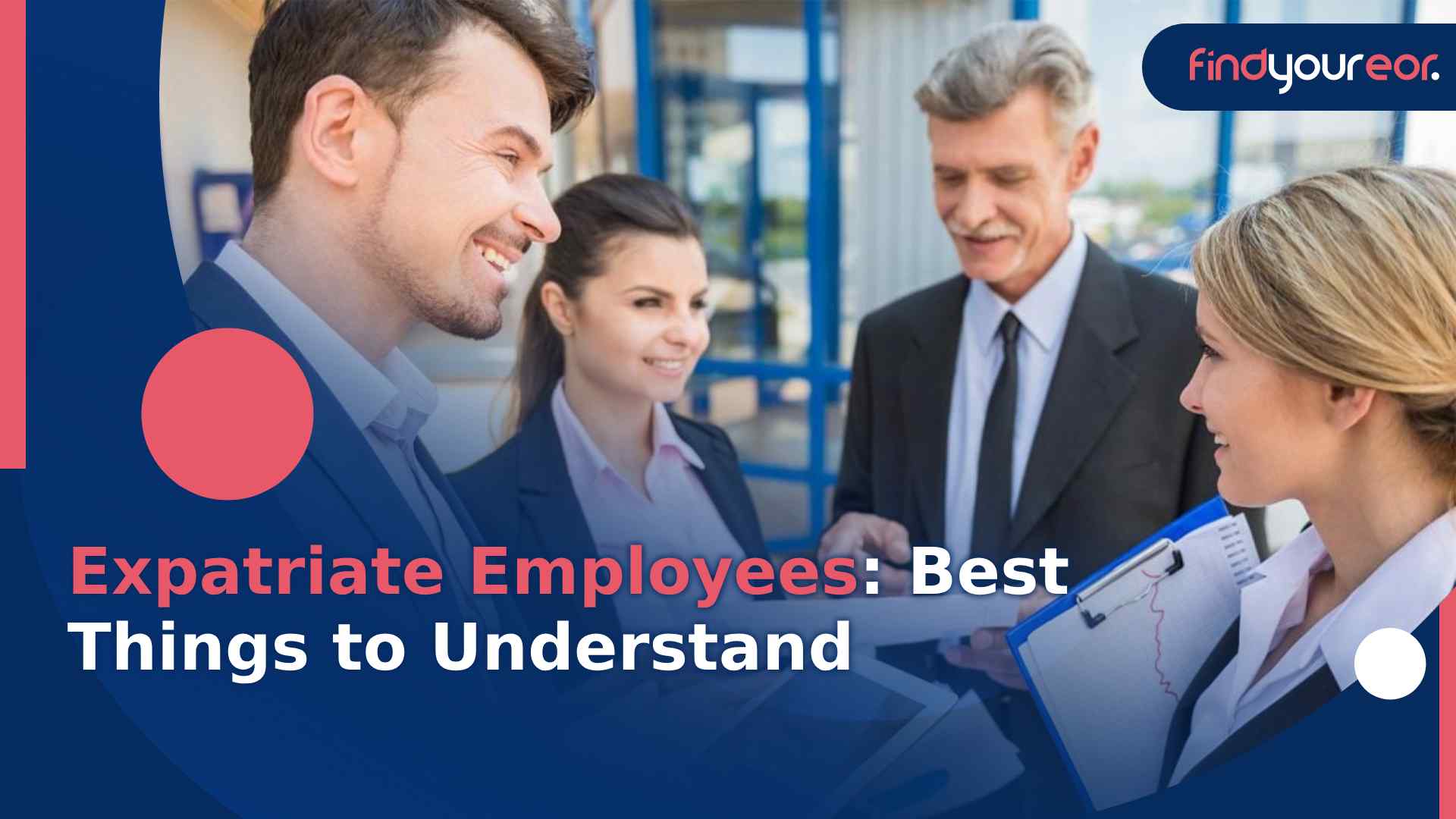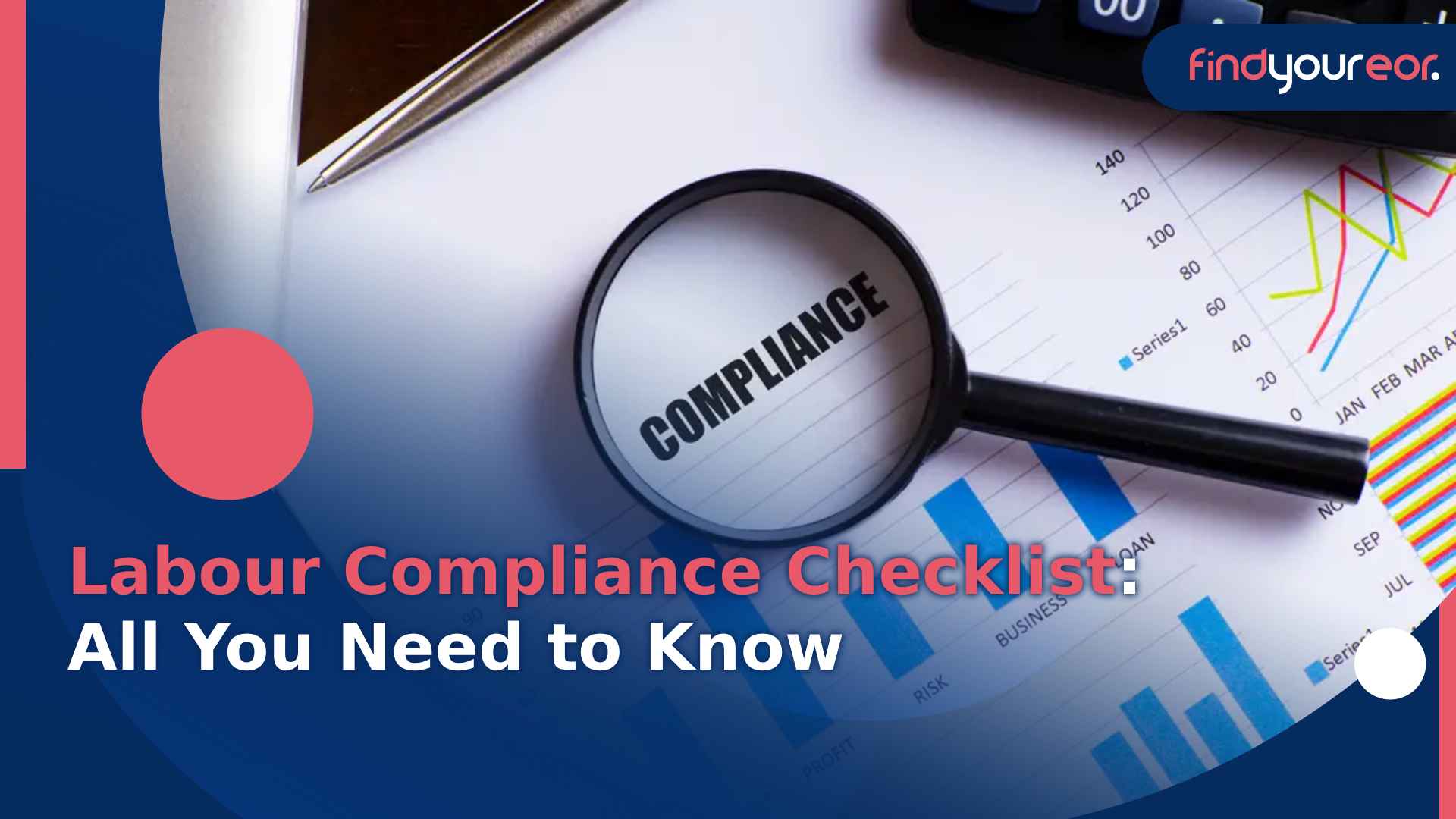Employer of Record UK: Why You Need It & How to Use It
Last update: April 5th 2024
The United Kingdom is renowned for its highly skilled and adaptable workforce, making the country’s professionals highly sought after in various industries worldwide. One of the key strengths of UK employees lies in their strong educational background, with many receiving top-notch training and qualifications from prestigious institutions.
Hiring specialists from the UK involves navigating complex visa and paperwork requirements, often posing challenges for employers. Work visa processes for UK professionals are bureaucratic and time-consuming, with evolving immigration policies adding uncertainty. To streamline this, consider hiring an employer of record in the UK (EOR UK). An EOR UK serves as the official employer for workers, managing tasks like payroll, benefits, tax withholding, and compliance with labor laws. This allows the client company to focus on day-to-day management while transferring employment responsibilities to the EOR UK.
With that in mind, how exactly do you use an EOR in the UK? In this article, we’ll discuss everything you need to know about the employer of record UK services.
How to Hire an Employer of Record UK: 5 Simple Steps
Hiring an Employer of Record (EOR) in the UK can streamline your international hiring process and ensure compliance with local employment regulations. Here are five straightforward steps to guide you through the process:
1. Do a Proper Research on Local EOR Providers
When looking for an EOR provider, only consider companies with a strong reputation, experience in your specific industry, and a track record of successful client partnerships.
Once you've identified potential EOR providers, evaluate their services and pricing structures. Here are some of the functions to look for when choosing your EOR UK services:
- Payroll processing
- Benefits administration
- Compliance support
- Customer service
- Smooth onboarding experience
- Intellectual property preservation and data security measures.
Compare pricing plans to find the best fit for your budget and requirements. Make sure that the pricing system is very transparent so that you don’t come across surprise pricing add-ups and limitations in the future.
2. Meet With the EOR Providers & Weigh All the Pros and Cons
Reach out to your shortlisted EOR providers to schedule consultations. During these meetings, discuss your specific needs, ask questions about their services and processes, and clarify any concerns you may have.
Here are some questions to ask your EOR provider:
- Do they own an entity in the UK?
- Does the EOR provider offer onboarding services
- Can they ensure accurate and trustworthy employer burden calculations?
- Does the EOR provider offer high levels of compliance?
- How seriously do they take the data security and intellectual property concerns?
The meeting step will help you assess each provider's compatibility and reliability and ensure the EOR provider has everything your company needs.
3. Ensure the Chosen EOR Offers Global Coverage
One of the key points to consider when choosing the employer of record UK provider is whether or not they offer global coverage. An EOR provider that has a strong presence in the international market will help you navigate all the regulations and employment laws in different countries and regions, not just the UK.
This way, you could have a single EOR UK provider for all the international employees your company will need to hire in the future. It will help you avoid the hassle of hiring multiple EORs and dealing with all of their legal entities. Instead, you could hire and manage all your employees in one centralized platform of your global EOR provider.
4. Read Reviews, Take a Final Look at Contracts and Agreements
Before making a final decision, make sure you’ve read all of the reviews and opinions on the EOR provider online. Don’t just fall for the shiny customer reviews on the EOR provider’s own website page. Try to find more objective reviews and see if you can contact their present or past clients to have a more detailed understanding of all the pros and cons of the EOR.
Once you’re ready to finalize your decision, carefully review the contracts and agreements of your chosen employer of record UK provider. Pay close attention to terms related to service levels, pricing, termination clauses, and any additional fees.
You’ll also want to seek clarification on any ambiguous or unclear terms to avoid misunderstandings later on.
5. Work Closely With Your EOR Provider
Once you’ve chosen the employer of the record UK provider you want to work with, make sure you are actually working with them on a daily basis. Yes, the employer of record UK is there to take off your shoulders most of the responsibilities and HR-related tasks but keep in mind that they also bring to the table an extensive source of experience and knowledge of the local labor market, which you could use to your advantage.
Work with them to make your international team feel at ease at your company and to make sure that what you provide meets their expectations. The EOR provider will help you understand how to design a better compensation package, facilitate a smooth transition for your employees, and ensure open communication between you and the employee throughout the onboarding process
What are the Benefits of Using Employer of Record Services in the UK?
Partnering with an employer of record UK offers numerous advantages for businesses expanding their international operations.
Here are some key benefits:
- Compliance assurance: EORs are well-versed in local employment laws and regulations, making sure your company remains compliant with UK labor standards and statutory requirements.
- Risk mitigation: By outsourcing employment responsibilities to an EOR, businesses can mitigate the risks associated with legal liabilities, tax obligations, and regulatory compliance, reducing potential penalties and legal disputes.
- Cost efficiency: Employing an EOR eliminates the need to establish a legal entity or subsidiary in the UK, saving on setup costs, ongoing administrative expenses, and overheads associated with HR and payroll management.
- Streamlined operations: EORs handle payroll processing, benefits administration, tax filings, and other administrative tasks, allowing companies to focus on their core business activities without the burden of complex HR functions.
- Flexibility and scalability: EOR services offer flexibility and scalability. This allows businesses to quickly scale their workforce up or down in response to changing market demands or business objectives without the constraints of traditional employment structures.
- Global talent access: Leveraging an EOR facilitates access to a diverse pool of talent in the UK and beyond, enabling businesses to recruit and retain skilled professionals without geographical limitations or immigration constraints.
- Enhanced employee experience: By partnering with an EOR, businesses can provide their employees with a seamless and compliant employment experience. This includes access to competitive benefits, payroll accuracy, and timely support for HR-related inquiries.
Hiring the services of an employer of record in the UK allows businesses to expand their global footprint efficiently while guaranteeing compliance, mitigating risks, and optimizing operational performance.
A Complete Guide on Hiring in the UK
For international businesses aiming to establish themselves in the UK or startups preparing to recruit their initial employee, it helps to invest some time in figuring out the applicable legal framework governing employment in the UK. Here are some of the key aspects of the UK employment law you need to be informed about:
How Does Brexit Affect UK Employment Regulations?
A significant portion of UK employment law stems from EU legislation. While Brexit did not immediately alter UK employment law, it did impact immigration policies and the right to work. The responsibility now falls on the UK government to determine future modifications, potentially revising existing laws, embracing new EU developments, or implementing alternative provisions.
Those looking to work in the UK must adhere to new immigration regulations and secure the requisite visa. Employers must possess a valid sponsor license to allocate a Certificate of Sponsorship to applicants seeking work visas. EU nationals are now treated similarly to non-UK applicants, with the exception of those under the Ukrainian Scheme.
Key UK Staff Employment Regulations
Here are some of the key factors you need to keep in mind when hiring employees from the UK:
Establishing a Legal Entity in the UK
When expanding an international company into the UK, a critical decision is whether to establish it as a branch or a subsidiary. Each option has its implications concerning taxation, liability, and regulatory requirements. Branches operate as extensions of the parent company, while subsidiaries are separate legal entities. Of course, instead of establishing a branch or a subsidiary, you can partner with an employer of record that would function as your legal entity in the UK.
Employers' Liability Insurance
Employers' liability insurance is a crucial safeguard against compensation costs for work-related illnesses or injuries. It is mandatory for businesses employing one or more individuals, with daily fines for non-compliance.
Right to Work and Visas in the UK
UK regulations aim to prevent the employment of illegal workers. Employing an illegal worker, even unknowingly, can result in severe penalties. Therefore, verifying every potential employee's right to work in the UK is essential.
The government provides guidelines for lawful checks, requiring either physical examination of original identity documents or an online verification process for non-UK nationals.
Payroll Registration
Registering as an employer with HM Revenue and Customs (HMRC) is mandatory before the first payday, regardless of the number of employees. Obtaining an employer Pay As You Earn (PAYE) reference number from HMRC is necessary to guarantee accurate tax payments, which may take up to five days to process.
Partnering with an employer of record UK allows you to streamline these processes and mitigate the risks. An EOR UK acts as the legal employer, handling payroll, benefits, and compliancepo]]] matters on behalf of your business. This eases administrative burdens and ensures regulatory compliance.
Payroll Taxes in the UK
In the United Kingdom, employers and employees are subject to various mandatory payroll taxes and contributions. These include:
National Insurance Contributions (NICs)
- Employers pay a 13.8% tax based on the employee's national insurance category.
- Employees earning over £242 a week pay NICs, with rates varying depending on their category. The rates are typically 12% on weekly earnings between £242 and £967 and 2% on earnings above £967.
Pension and Benefits
- Employers must enroll employees in a pension scheme and contribute at least 3% of the minimum 8% tax.
- Employers contribute 13.8% of the monetary value of taxable BIKs provided to employees.
- Employees must also pay taxes on BIKs, with rates varying based on the benefit's value and nature.
Employee Income Taxes
- Income tax rates vary based on income brackets and region, with personal allowances of £12,570.
- England, Wales, and Northern Ireland have different tax bands from Scotland.
To calculate payroll taxes, determine the employee's gross pay and apply the specified percentages for NICs, workplace pension, BIKs, and income tax. Most employers use the federal Pay As You Earn (PAYE) system to calculate and remit payroll taxes. Payroll taxes should be factored into total employee costs when hiring in the UK.
Overview of the UK Employment Law
In the UK, employees and other workers have various rights and entitlements concerning their employment status. Businesses must verify the nature of the working relationship they intend to establish, whether as an employee, worker, self-employed contractor, or agency worker, as this will determine the applicable rights, obligations, and tax treatment. While there are no distinctions between England and Wales, differences may arise in Scotland and Northern Ireland.
While there are no disparities between England and Wales, differences may exist in Scotland and Northern Ireland concerning specific employment rights and regulations. It's crucial for businesses operating in these regions to be aware of and comply with relevant legislation.
How Can I Terminate an Employee in the UK: A Guide for Employers
Terminating an employee in the UK requires following certain guidelines to ensure compliance with employment laws and avoid legal disputes. Here’s how a company can terminate an employee in the UK:
1. Understand the Probationary Period
During the first two years of employment, companies can generally terminate employees at will, except in cases of discrimination based on protected characteristics such as race, gender, or beliefs. Most businesses place employees on a probationary period during the initial months, allowing easier termination if the employee is not a good fit.
2. Establish a Fair Reason
After an employee has worked for the company for two years or more, termination requires a "potentially fair reason" such as poor performance, misconduct, or redundancy. These reasons must relate to the employee's conduct, ability to perform their job, or other factors affecting the employer-employee relationship. It's essential to document the reasons and any warnings provided to the employee.
3. Provide a Notice of Termination
If the decision is made to terminate an employee, companies must provide advance notice, the length of which varies based on the employee's length of service. For example:
- One week: For employees with more than one month of service.
- Two weeks: After two years of service.
- One month: After four years of service.
- One week per year of service: For employees with 5-11 years of continuous employment.
- Three months: After 12 years of service.
The maximum notice period is 12 weeks.
4. Handle Immediate Termination
Companies may terminate the employee immediately without notice in cases of gross negligence or severe misconduct (such as endangering others).
5. Consider Pay During Notice Period
Many companies choose to pay employees for the notice period without requiring them to continue working. This can help manage the transition for both the employer and the employee.
6. Provide Termination in Writing
When ending an employment relationship, the company must provide written notice specifying the reasons for termination and the notice period, if applicable.
7. Address Severance Pay
While the UK government does not mandate severance pay, companies often use severance packages as part of termination agreements to resolve the termination amicably and avoid potential grievances. Employees may seek legal advice before signing any agreement.
By following these steps, companies can ensure a fair and lawful termination process in the UK while protecting their own interests and those of the employee.
Consequences of Missteps
In case of employment disputes, matters are typically addressed in employment tribunals at first, with the potential for appeals to higher courts, including the Supreme Court. The maximum compensatory award for unfair dismissal is £93,878 or 52 times the claimant’s weekly pay, with some exceptions.
Employers failing to comply with tribunal orders may face additional charges. Discrimination and whistleblowing cases may entail uncapped compensation, including awards for Injury to Feelings.
Choose EOR Worldwide for UK EOR Services
Unlock the potential of your global expansion with EOR Worldwide and our employer of record services UK. As your trusted EOR UK provider, we offer comprehensive solutions to simplify your international hiring process.
With our expertise, dealing with employment regulations becomes seamless, allowing you to focus on your main business goals. Our EOR services ensure compliance, mitigate risks, and streamline administrative tasks, whether you're establishing a presence in the UK or expanding your operations worldwide.
Partnering with us means having a reliable ally committed to your success. Let us handle the intricacies of employment management while you unlock new opportunities for growth. Choose an employer of record UK services and elevate your global expansion journey with confidence and ease.



















